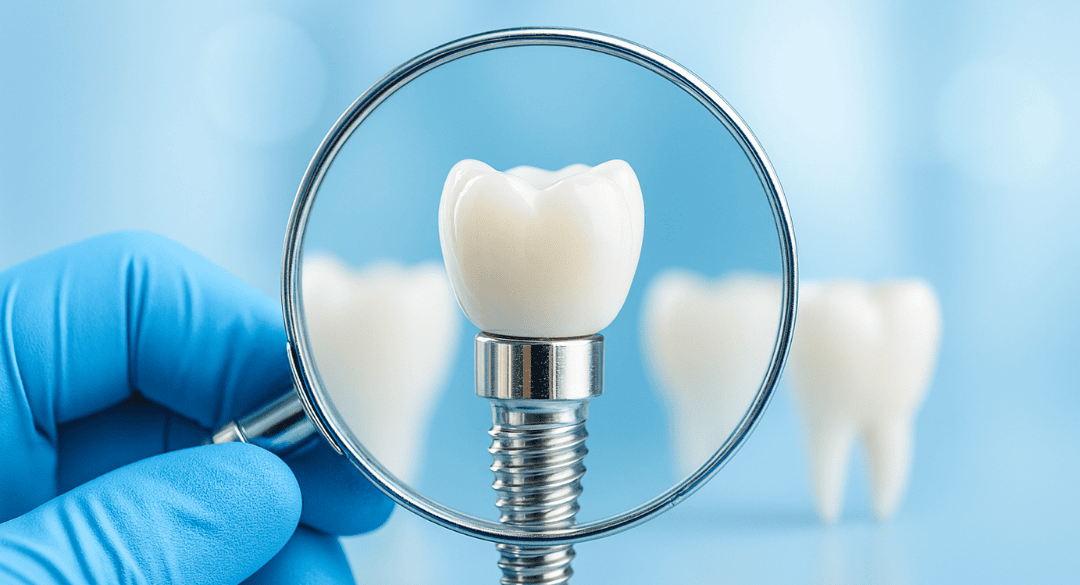Abutment

What Is a Dental Abutment? (And Why Should You Care?)
If you're considering a dental implant or a bridge, you've probably heard the term abutment tossed around. Simply put, an abutment is the anchor that holds your dental work in place. It’s the critical foundation for your new restoration—you might not see it once everything is done, but without it, nothing would stay put.
Understanding the type of abutment you need is key to understanding your treatment options.
The Two Main Types of Abutments
1. When Your Natural Tooth is the Abutment (For a Dental Bridge)
If you are missing a tooth and choose a dental bridge, the healthy teeth on either side of the gap become your abutment teeth.
- What happens: We carefully reshape these neighboring teeth, creating sturdy pillars to support the bridge.
- The benefit: This process not only replaces your missing tooth but also gives these anchor teeth a protective "helmet" in the form of a crown, which is especially beneficial if they already have large fillings or are weakened.
2. The Implant Abutment (For an Implant Crown)
If you are getting a dental implant, the abutment is the crucial middle piece that connects the implant (which is in your jawbone) to the final crown that you see.
- What it does: This custom-designed connector provides a solid anchor for your crown and helps shape the gums to create a natural-looking emergence from the gumline.
- Material options: We choose the material based on location—ultra-strong titanium for back teeth and beautiful white zirconia for front teeth to prevent any gray from showing through the gums.
What to Expect During Treatment
Whether we are preparing a natural tooth or placing an implant abutment, our focus is on creating a stable, healthy, and precise foundation.
For a bridge, you can expect some temporary sensitivity on the prepared teeth, which is normal and resolves quickly. For an implant, the abutment placement is an exciting and simple appointment that marks the final step before you receive your new tooth. In either case, we will meticulously check your bite to ensure all forces are distributed evenly for comfort and longevity.
The Hidden Benefits of a Quality Abutment
Over decades of practice, we've seen that patients who have properly designed and placed abutments rarely have problems down the road.
- Better Gum Health: A well-contoured abutment is easier to clean around, leading to healthier gums.
- A Stronger, More Comfortable Bite: By distributing chewing forces evenly, quality abutments prevent stress on your jaw.
- Superior Aesthetics: The right abutment makes the difference between a crown that looks "fake" and one that is indistinguishable from a natural tooth.
Caring for your abutment teeth is straightforward. For bridges, a water flosser can be a game-changer for cleaning underneath. For implants, you simply brush and floss as you would a natural tooth. At every check-up, we pay special attention to these foundational areas to ensure they remain healthy for years to come.
Here's what we want you to remember:
Abutments aren't just dental jargon; they're the foundation of your restored smile. Whether it's a natural tooth supporting a bridge or a custom piece connecting an implant, the quality of the abutment work determines how long your investment lasts and how natural it feels.
Every patient's situation is unique.
What works perfectly for your friend might not be ideal for you. That's why we spend time understanding not just your dental needs, but your lifestyle, your concerns, and your goals before recommending a treatment plan.
Have questions about a bridge or an implant?
Or are you wondering if your current dental work could be improved? We're here to give you honest, personalized answers. Schedule a consultation at our Woodland Hills practice – let's talk about what's really best for your smile.


